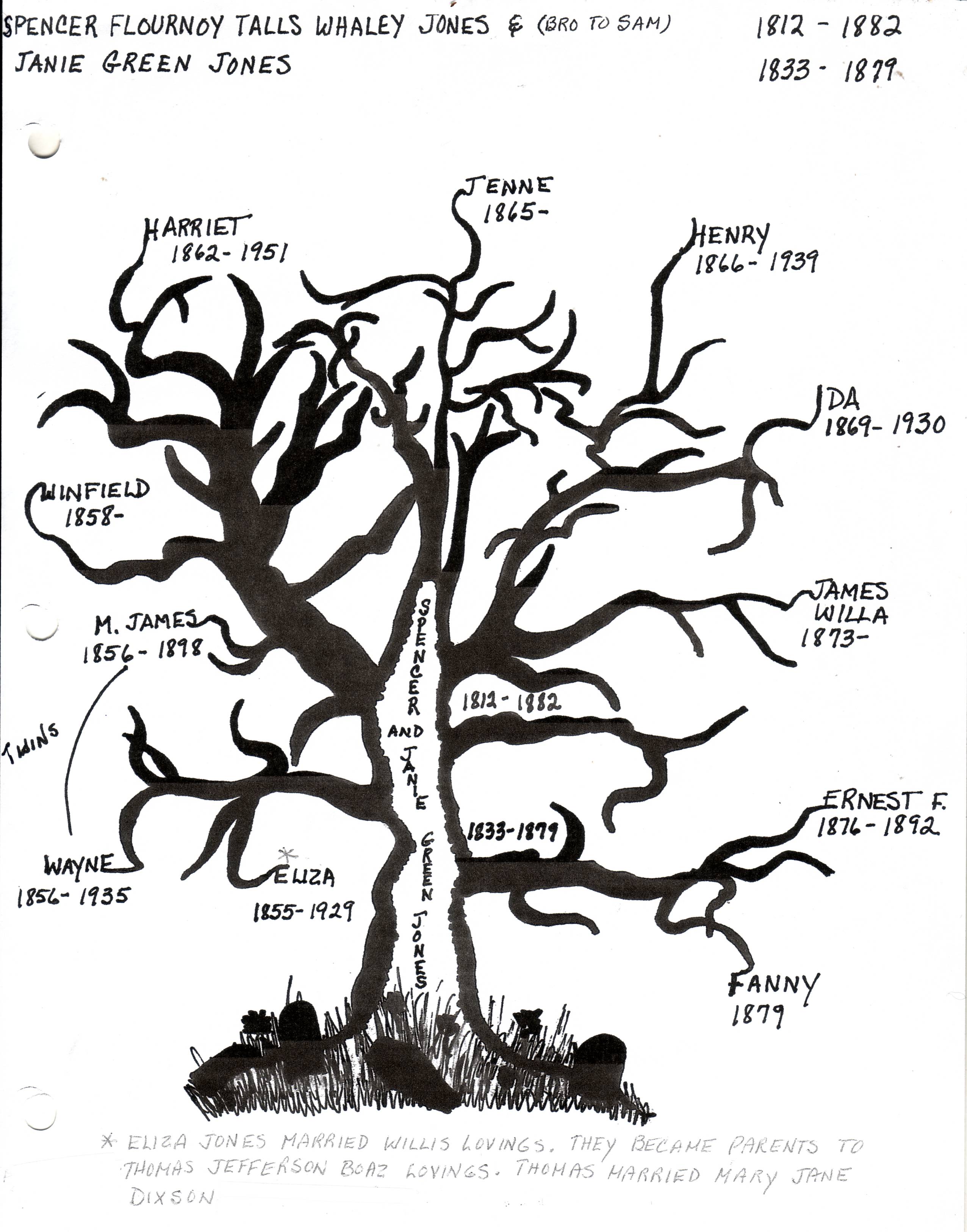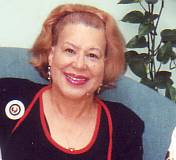
Harold was a Christmas week baby born in generation #65 about eleven years after his father returned from serving in the United States Army during World War I that raged from years 1914 to 1919, ... and a year after the economic depression began in 1929. His birth, life and times like that of the Kennedy brothers and sisters, ... raises the age-old question as to how and why does goodness come into existence? The pursuit of goodness as we have come to believe it, ... has now spanned sixty-seven generations of human beings encompassing more than two millennium, twenty-one centuries, two thousand years, 24,000 months, etc. etc. etc. for gifted and talented youth with time to think about themselves as part of something beyond what is easily seen and heard. It is our theme that we want youth generations to contemplate in their bodies and souls (really keeping it real).
Lewis Marshall Robinson Martin, born abt 1895 Rose Alice Wilkerson Lowry, born abt 1903
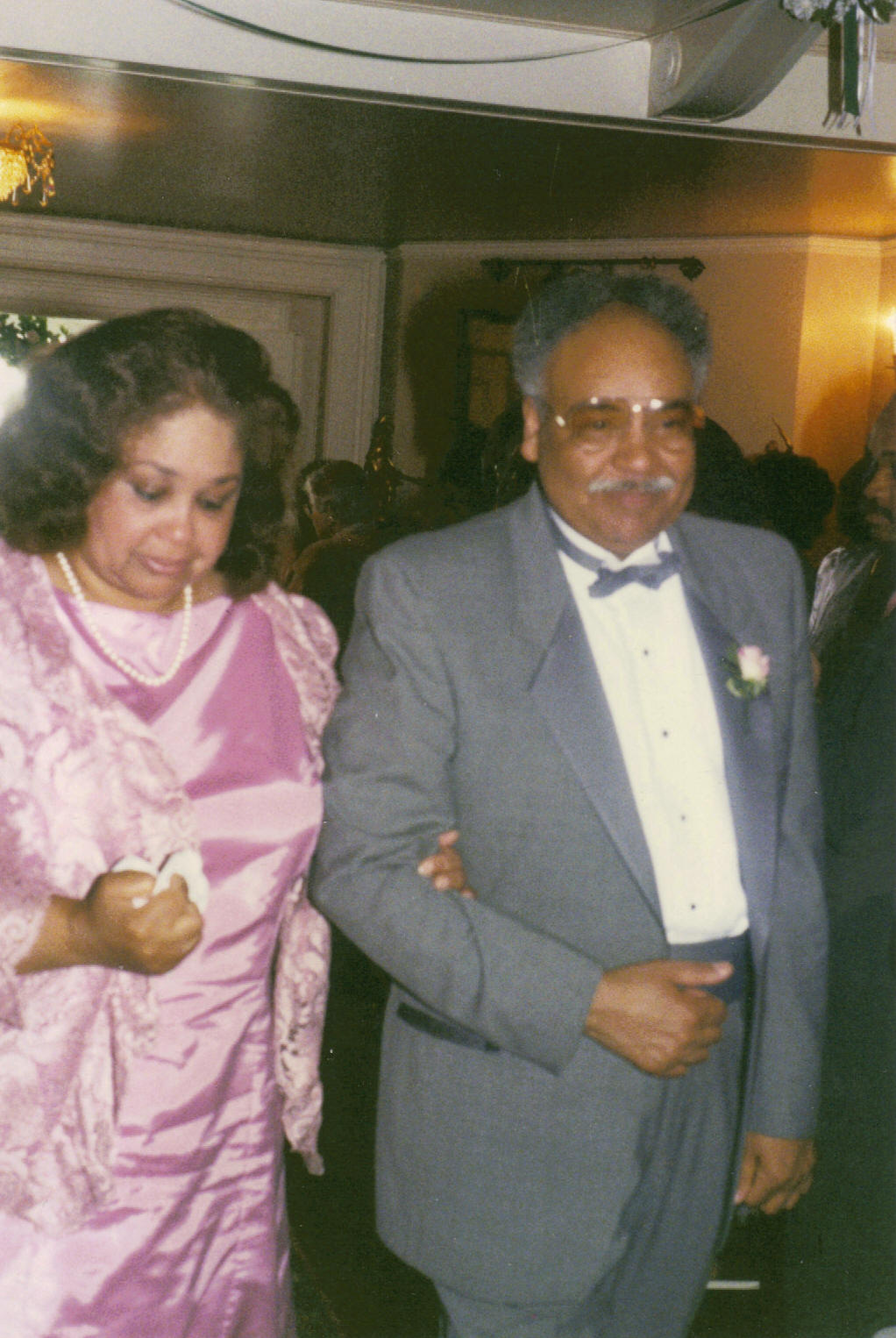
The real life story of Harold Martin, Sr. affords our site an opportunity to make references to the virtues and values of many other people who fought the good fight in trying to live a useful and helpful life that benefited "the least of us." In the real world of free-will to choose or reject, ... Harold had the wisdom to find and hold dear a believer wife Barbara Holmes a minister's grand-daughter for living (not imitating) a life in pursuit of goodness and happiness. And, he surrounded himself with other people in pursuit of goodness, not simply money, ... of which he earned plenty, by being the the best that he could be as a son, brother, student, athlete, friend, craftsman, soldier, husband, father, citizen, entrepreneur, neighbor and all the functional matters of life in the pursuit of goodness (not to be confused with all too common rituals and rites of passage to nothingness).
Spiritually speaking, in cultural dynamics many enlightened and educated folks believe, ... Harold inherited his moral worth at the moment of conception through birth, nurture, inspiration, motivation, education and training in a family of believers. Most seemingly believed their past, present and future family values were more or less like a finely designed watch: intelligent design by a "hidden hand" resting firmly on Harold's shoulder and their own. Like so many other successful men of African heritage, Harold learned to use his hands long before the age of puberty by virtue of an environment wherein boys were encouraged and expected to physically exert themselves for not only a sense of self-worth but also a common good. After puberty, the boy Harold came to be a man that did not fear learning and working with his hands and mind, ... becoming a watch maker in NYC.
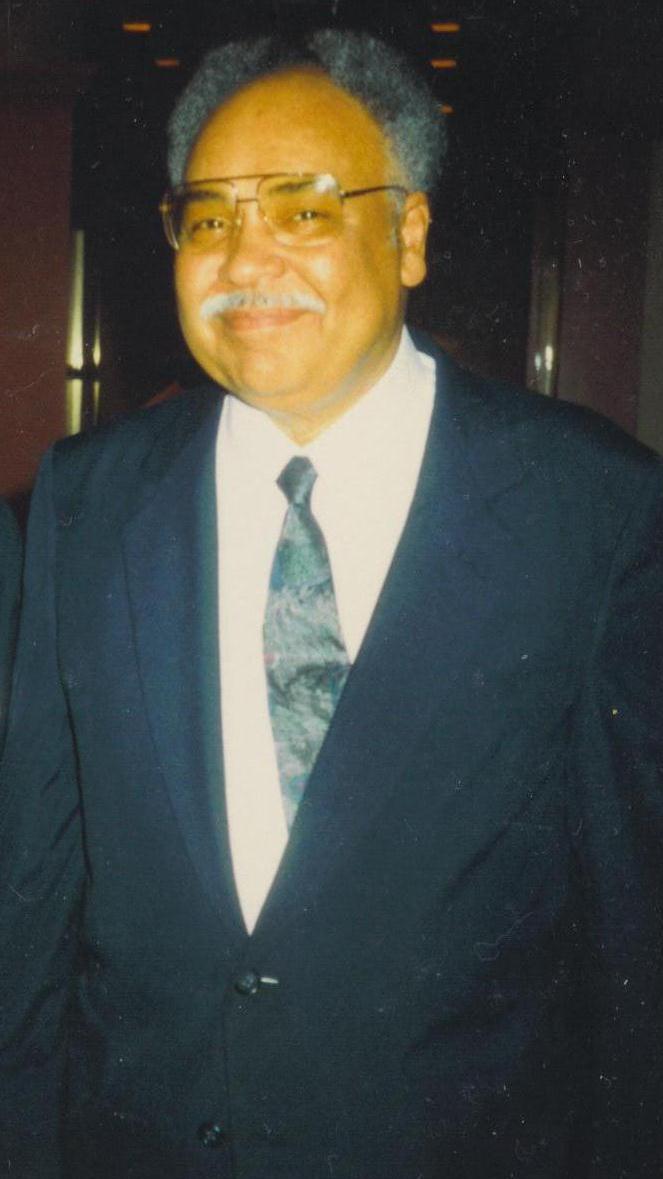
He is an American success story for youth generations to comprehend what champions are made of: past, present and future gifted and talented boys and girls who "love ye one another" in facing life's challenges. Silly Sally and Simple Simon talk about role models for boys or girls of African heritage without real stories of men and women who mattered in pursuit of goodness is a fallacy born of ignorance. Harold is not a role model for children but rather a story about the pursuit of goodness by a boy who became a man seeking to live a useful life. His youth attitudes about himself and others molded behaviors that distinguished him as a man of property and preparation to acquire, have and use it to help raise up a new and better generation of believers. And, to not only remember his ancestry but honor them by embracing their offspring as he does and would his own. Harold is not the first or last man of achievement to internalize sounds of his father forever in the mind and tunes of New York City where Lewis Martin died. The great jazz composer and pianist Horace Silver Horace Silver (born September 2, 1928), born Horace Ward Martin Tavares Silva in Norwalk, Connecticut was also energized to life and inspired by a man who could never die so long as descendents remember and recall his contributions in the great quest for goodness sake.
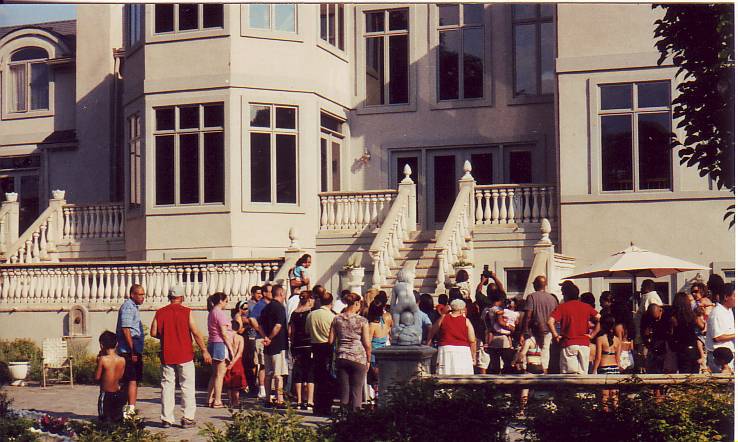
Attitudes and cultural values of children (inclusive of music) are very much molded by what they see and hear in environments inclusive of grandfathers, grandmothers, fathers, mothers, siblings, geography, working people, sports, schools, coaching and perhaps ancestral spirits in the context of believing themselves to be born of something greater than themselves. In a real way, success as achieved by Harold is a continuation of unseen roots (including sailors, soldiers, machine operators, metal workers, migrants, miners, mule-skinners, and many other men of courageous and/or skilled means) ... in a tree of life generating new lives including those gifted and talented enough to help themselves and others.
And, Harold's family tree is linked to trees of other believers like his grandfather Lee Lowry, born 1863 a general merchant and commercial land-owner pursuing goodness the old fashioned way of dedication to learning and working hard for many hours, days, weeks, months, years and decades for better ones ahead: in a long story about Harold before he came into being and inspiration, motivation, education and training to pursue goodness. Harold was not the first African-American entrepreneur with the analytical abilities and foresight to generate short-term gains by functional labor for others, while aspiring for mid-term benefits to help his family and at the same time investing and planning for long-term ownership and use of real property (improved and unimproved real estate).
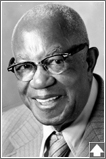
Most people think in terms of annuals (one year spurts of hopes and expectations) while more enlightened souls often are able to envision several years ahead in providing for their families; but, rare indeed are those minds of men and women gifted and determined enough to acquire real properties that yield long-term benefits such as Harold did in the New Jersey Meadowlands. Indeed, he turned a short-term garbage dump of other men into a long-term treasure grove. We want urban fiction writers and actors to know that legitimate wealth creation by men of African heritage includes more than entertainment enterprises. It is a matter of fact the very prosperous funeral industry disposing of African-American remains is in effect part of the waste disposal industry and its technologies.
A.G. Gaston in the picture (above right) was born in 1892 within the first totally freeborn generation of African-Americans since beginning of the Civil War and great march toward emancipation from slavery. Like Harold's grandfather, A.G. was a prosperous businessman in the sense that he earned a lot of wealth, but more importantly he aided Dr. King and other civil rights leaders at the times and places when they needed money to carry on in the pursuit of goodness. A.G. was definitely a gifted child in our eyes with the kind of characteristics exhibited by Harold Martin enlightened in the value of gaining superior information for use in pursuing goodness in the real and spiritual sense.
About two percent of babies born can be classified as gifted and an additional eight percent in the IQ categories of above average potentials for helping in the uplift of others to the universal cause of goodness. Without them, "the least of us" anywhere on earth or of any color and faith, ... have no history of ever conceptualizing, planning or programming the pursuit of goodness such as functional families, highways, clean water, waste disposal, factories, communities and thousands of other enterprises including hospitals and schools. Long-term extraordinary achievement can be achieved by gifted and talented births among "the least of us".
As a matter of fact, gifted and talented (Dr. Dubois talented tenth) youth like Harold are still being born and among African-Americans the vast majority (unlike Harold's applications of talent) ... are still not devoting their life's energy to the pursuit of goodness to or for "the least of us." A related Christmas story for believers is that in year 1930, Professor John Maynard Keynes published his great "Treatise on Money" which afforded the philosophical economic rationale that market forces which lowered rage rates would not cure economic depressions, but rather production and investment would only increase if spending by consumers, business, and government went up.
Keynes theory greatly influenced future businessmen like Harold Martin in enterprise endeavors that avoided embracing pre-depression era ideology that under-paying and exploiting employees such as his father and uncles was somehow good for business and therefore good for the country. Harold's birth in the generation of babies born during years 1920-1949 helped form the grassroots of changed attitudes among businessmen and women that emerged in the 1940s-1970s, ... prior to old ideologies that reemerged in the 1980s. As a man of considerable property wealth accumulated by his generation, Harold is a success story that urban fiction writers have rarely if ever chosen to write about in the accumulation of wealth. We are concerned that unless stories are told and written about men of African heritage who earned fortunes by production of goods and services of functional value, ... urban fiction writers and actors will continue indoctrinating Black youth and their equally uneducated mothers and fathers with the propositions that men like Harold do not now or have ever existed in the world of industrial entrepreneurs.
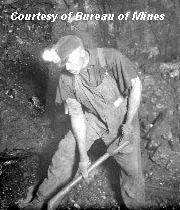
Harold's father, Lewis Martin, was a coal miner by profession in a long line of unheralded African-Americans pre-dating the American Revolution and even the French and Indian War when men of means in Maryland and Virginia dared to send and take men of African heritage underground to find energy to burn. And, as with everyman ever born of woman, ... Harold's story cannot be except by way of the father and mother who made him so. In that very realistic sense, unlike Hollywood projections of successful men of color here, there and everywhere, ... Harold has never imagined himself to be a self-made man and the phenomenal success achieved in his business ventures have left him humble in the thoughts that "except for them, I would not have been born."
Our research about Harold Martin led us to examine the roots from which he emerged and the great cause of enterprising aspirations held by his relatives such as Dudley Fuqua, born abt 1870 who married his Aunt Georgia Wilkerson and established a prosperous business enterprise (waste disposal) in Pittsburgh Pennsylvania, and providing employment opportunities for a lot of people from Virginia and other places. Like Harold's his life's story is yet to be written by one of you who will someday be writers that want to help the least of us gain insight into how to be healthy, happy and prosperous without disappointing or hurting others.
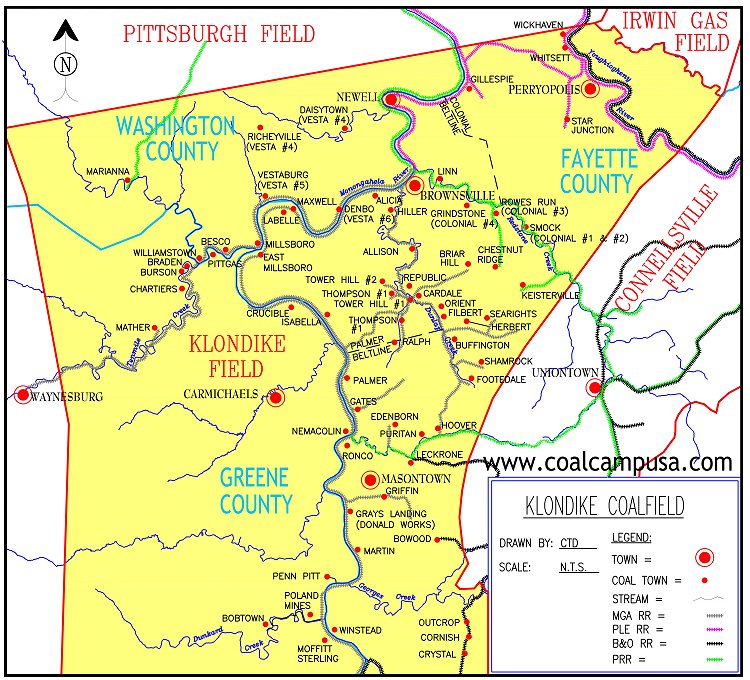
One of the most salient points we can make about Harold Martin's march to success was that his marching did not begin with Dr. King and neither did the Christian Leadership gathering at the Washington Mall in 1963, ... nor even the beginning of potential marchers witnessed and praised by Marcus Garvey in 1919 following the ending of World War I. Like many young men and women of his generation, Harold marched to ascertain his sense of self-worth by integrating the functions of a great society, ... not avoiding the challenges (such as military service) faced by previous generations of young men including his father and brothers. He and his brothers were, like the Kennedy brothers, ... their own fathers' sons, not to be confused with the make-believe urban fiction characterizations and raps that bombard so many millions of youth. The notions of a self-made man or woman in pursuit of goodness is silly but not stupid in understanding human tragedies of young men without fatherhood blessings. Earthly fathers matter more in generating blessings than do most preachers ever care to preach.
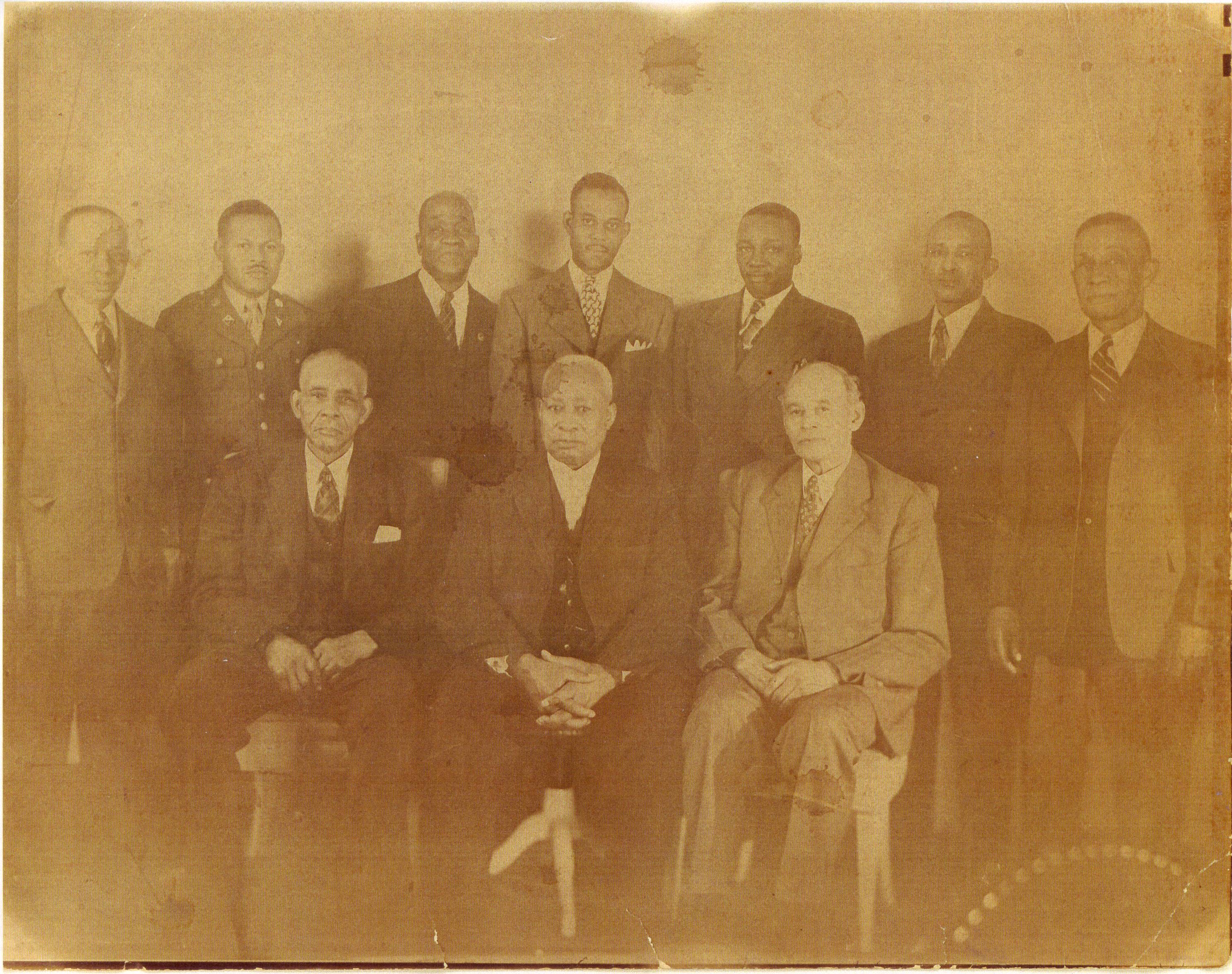
Harold and his brothers, like millions of other African-American males, and White male offspring such as the Kennedy brothers, ... were blessed to have and know a father, grandfather, uncles, and cousins to fill his mind with details about being and living as an enlightened man laboring to not only earn a living but also to raise up a new generation in context of the good news. He could not have become as successful as accomplished without indoctrinated attitudes about good behavior for a greater purpose than one's self. In other words, he saw and heard what good men did and listened to them about their perceptions of goodness such as laboring to earn and learn to be healthy, wealthy and wise. After all is said and done, what good is wealth for entertainers, rockers and rappers like Sam Cooke, Jimmy Hendricks and Tupac Shapur who earned millions of dollars and perished from the earth without generating lasting goodness, ... not because they died young but rather due to the pursuit of folly. Indeed, Harold's family, especially it's female members, like the Kennedy women, ... did not tolerate foolishness in nurturing boys to men who someday would likely become someone's husband, father, and perhaps uncle.
In our long march up from slavery and denigration, these men of their generation were much more important to us than the Harlem Renaissance imagined by actors, writers, artists and musicians with lifestyles and values that generated good feelings but bad health and very little wealth that helped anyone other than themselves. But, even so the men such as those below, by their attitudes and behaviors in France, ... helped open the doors of opportunities for artists like Josephine Baker among post-World War I Paris audiences who remembered and appreciated contributions of the Black Hell Fighters from Harlem, and Senegal too. Like Harold Martin, Bojangles emerged from a long line of energetic and enterprising Robinsons dating back to the Civil War and all that came after them up to him and his time in the sun. Their great pride found in Robinson-Martin Generations was not about simply being good church-goers but rather having the courage and integrity to do good in competition with others. Indeed, Bill Robinson allegedly could run faster backwards than most men could running forward! Robinson characteristics included athletic competitiveness.
Harold's Other Robinson Cousin From Past Generations
It is important to understand that Harold's sense of moral worth included volunteering to serve in the historic 369th Regiment (approximately 1500 young men of African heritage including Bill (Bojangles) Robinson) of the New York National Guard that millions of African-Americans such as Marcus Garvey viewed as sources of young Black men capable of exemplary attitudes and behaviors in the uplift of "the least of us." We want youth to understand that at the time of post World War II tensions between the United States, Western Europe and the East European allies of the Soviet Union, ... leaders reasoned into existence the North Atlantic Treaty Organization to facilitate the planned use of upwards of ten million or more young men like Harold if war ever erupted with the Soviet Union. The plan carried out for about forty years was to have approximately half in regular full-time military units and a second half organized as reserve forces. So, Harold was one of many millions of volunteers in the one-half of America's force structure of approximately 5.3 million young men maintained during the Cold War along with a similar combined total in other NATO nations including Canada, United Kingdom, and West Germany.
Though he was born and raised up to age of puberty in Grindstone, his roots were generated in the soil and toil of West Virginia wherein his father Lewis Marshall Robinson Martin, born abt 1895 was born, and western Virginia down into Bedford County wherein his mother Rose Alice Wilkerson Lowry, born abt 1903 was born. His genetic heritage included African, European and Native American ancestry dating back several known generations of enslaved Africans, displaced Native Americans and Anglo-Saxon Whites descended from England, Ireland, Scotland and Wales. In fact, Harold ancestry and offspring of him and his siblings are about as American as any person can be with all the characteristics and traits in the pursuit of goodness ever espoused by scholars. He and they did it their way forever remembering "Love ye one another."
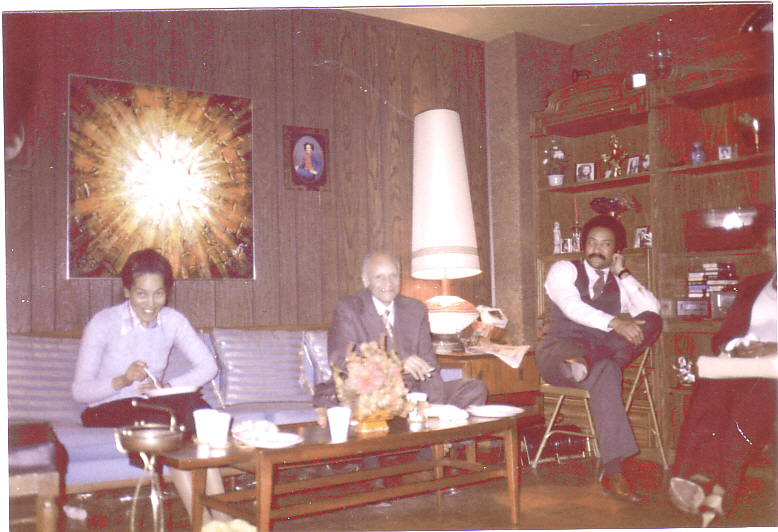
At the time of his birth with five older sisters and brothers: Emma Louise Lowry Martin, born May 1918 Alphonzo Lowry Martin, born abt 1919 Leoma Myrtle Lowry Martin, born abt 1922 Album Buster Lowry Martin, born abt 1923 Lewis Emmet Lowry Robinson- Martin, born abt 1924 Harold clearly had the advantage of older siblings and cousins in pursuit of goodness. In the Christian context of family, he was never poor even though the family had little or no money. It is a no-brainer for pundits in the process of rationalizing nothingness to suggest role models for boys are matters for mothers or others to choose and pick in molding attitudes and behaviors of bad boys and girls in worse environments and situations.
Almost without exception, men like Harold Martin, and Jackie Robinson before him in talking about his brother Mack Robinson, ... found precious and dear the blessings of having older siblings who loved and inspired them to pursue goodness. We suggest that Harold's family, like the Kennedys, were rich long before erection of mansions on earth. It is still a matter of philosophical differences as to how believers interpret the parable of Jesus: "In my father's house, there are many mansions." And such being the case, ... foundations in many places were laid long before Harold was born.
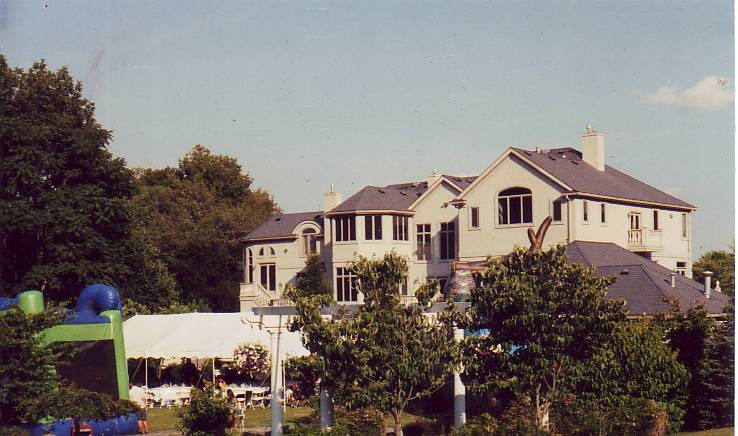
Harold's father Lewis Martin was employed as a coal miner in Grindstone, Pennsylvania in the five county Pittsburgh Metro Region Geographic Areas4 Lewis Martin had the most critical credentials necessary to be a coal miner: courage, faith and hope and he learned and earned Pennsylvania State certification mining papers that allowed him to work in an environment wherein all men are coal-dust colored and necessarily judged by the contents of their outputs. Anyone who thinks it was easy to be a miner, in any country, place or time, ... does not know very much about mining wherein a very small percentage of men have what it takes in addition to strength and stamina to overcome. True, a lot of men can enter beneath the surface but not for very long by themselves since the nature of coal mines requires men able and willing to integrate with others in a common cause of producing energy of value to all.
Coal Mining Generations of Memories
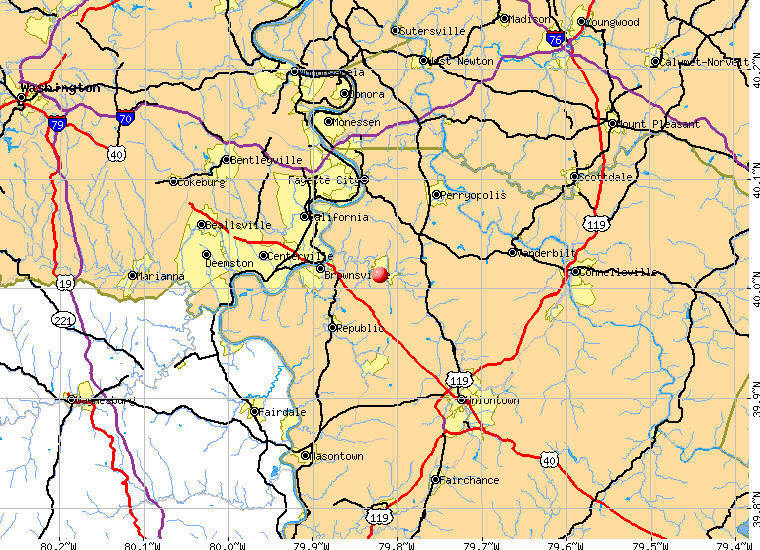
The depression had less effect on the employment of coal miners since coal was the most critical source of energy for not only factories made idle by the depression but more importantly homes, mills, railways and ocean going vessels. In addition, men like Lewis up from rural life experiences and training in places like Virginia and West Virginia were also fairly good farmers in knowing how to raise most of their own food including vegetables, hogs, chickens and offspring to help them. Harold and his family were multi-tasking long before the term came into popular usage by baby-boomers; and, he learned early on in his life that hard-work included the energies associated with movement, lifting, stamina and sobriety.
When his father suffered a serious back injury working in Grinestone coal mines (see red circle) not far from Brownsville reflected on map abpve Dangerous Work, ... the entire family of father, mother and eight children departed the small town of Grinestone, Pennsylvania and moved to New York City wherein work was available for the father and mother; and, Harold and his siblings were able to obtain a good education pursuant inspiration and motivation in their home. His older brothers had served honorably in the challenges of military service during World War II and very much aspired for opportunities to overcome adversaries and obstacles in pursuit of happiness.
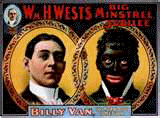
Harold Martin came of age in New York City at a time in the annals of human history that millions of inhabitants finally agreed, after the horrors revealed during and after World War II, ... that racism was not goodness, and thus was nothing of humor for entertainers to get rich. Black face comedy was over and done with, and young men of color were to be viewed differently than existed before the war. At least that is what some like Harold hoped to become reality. For him and many others like Percy Sutton and a lot of folks from the Caribbean to Harlem and the Bronx, ... keeping one's eyes on the prize of prosperity was more than about making money but also integrating the culture and society that provided it. Participation led to integration that led to connections to move on and up in the great city setting atop the world.
Harold's earliest training and work in the "Big Apple" was that of a watch-maker demonstrating his great insight and analytical abilities. He was the product of motivation by a father indoctrinated in the teachings of Booker T. Washington who urged Black men to learn and master a skill of monetary value that would afford them to be independent. Booker T. Washington differed from Dr. DuBois only in the sense that while DuBois wanted concentration on the gifted and talented ten percent (and so do we) African-American births, ... Booker T. was clever enough to avoid such terminology in former rebel states that had deliberately sought by murder and terrorism to prevent emergence of such youth. Yet, he was able to convey the necessity of young men seeking and gaining mechanical skills demanded by the market place in order to raise up new and better families.
http://en.wikipedia.org/wiki/Watchmaker_analogy http://en.wikipedia.org/wiki/Watchmaker
Harold, like his father, brothers and friends in post WWII New York City, ... was not afraid to work with his hands and mind in generating values in the cause of goodness. For him and his kind, education mattered but was of minimal importance if not coupled with prerequisite enlightenment about industries and enterprises within them. Indeed, New York City during the 1920s, 1930s and 1940s even into the declines of the 1960s was the economic opportunity gem for people of African heritage everywhere because they loved to learn; and, worked longer and harder than people anywhere on earth. It is regrettable that so many Black writers in the latter cited decade chose to highlight entertainer and gangster mentalities in Harlem rather than the many men, including General Colin Powell, who emerged victorious over adversities encountered there.
New York City Roots and Memories
Gifted and talented men and women of their generation learned early on in their New York City lives that racial integration was the best course for penetration in the society necessary to acquire connections for obtaining opportunities to achieve goodness in the pursuit of happiness. For many such men, it was clear even then that a greater society was a better society for uplifting the aspirations, ambitions and determinations of most (not all) African-Americans. Harold used his connections to learn and earn for himself and family, friends and "the least of us" in Newark, New Jersey who needed and appreciated being employed to make plastic products; and receive a living wages and benefits such as health care.
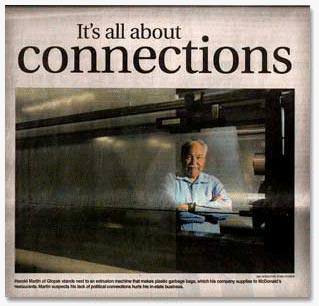
The plastics extrusion industry is 100 percent about intelligent design of what is desired as a product. Requirements in each step of a process are both exacting and without tolerance for mistakes.
Harold observed, inquired, researched, invested, learned and mastered the plastics extrusion process for manufacture of products sought by the growing American market place. His connections into the industry included men who were knowledgeable about functional matters of labor, materials and money in addition to customer potentials.
http://en.wikipedia.org/wiki/Plastics_extrusion
The company was founded by Harold Martin at a time and place wherein his New York-New Jersey connections afforded him superior knowledge to succeed in the plastics industry. Still yet, in addition to investing capital to begin he had to devote long hours, weeks, days, months and years to make it all work for the goodness he aspired. When all is said and done, those close to him can say with clarity that he devoted all of his non-business time to family matters including offspring of his siblings and cousins that he witnessed and cared being born, nurtured, inspired, motivated and educated to pursue useful lives.
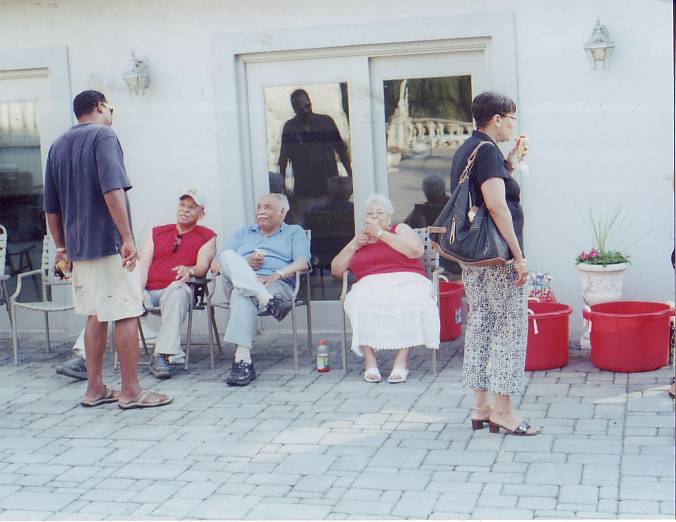
Husband: Harold Martin
Born 1: 28 Dec 1930 in: Grindstone, Pennsylvania
Married: in:
Died: in:
Burial:
Father: Lewis Marshal Martin
Mother: Rose Alice Lowry
Other Spouses: Barbara
Wife: Barbara
Born: 14 Nov 1932 in:
